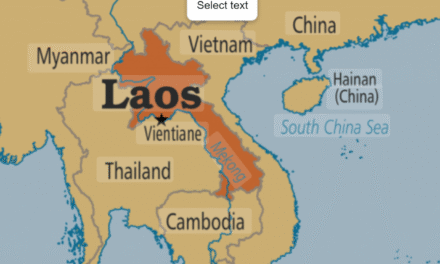At this year’s Eastern Economic Forum in Vladivostok, I had the opportunity to sit down with Marco Melpignano, an Italian entrepreneur and the Honorary Consul of Italy in the Russian Far East. His story is one of blending cultures, navigating politics, and sustaining business through turbulent global times.
Building Italian Taste in Russia
Melpignano has lived in Vladivostok for over a decade. In 2014, he began producing authentic Italian cheeses—mozzarella, burrata, and dried cheeses—becoming the first to do so in the city. “At the start, it went very well because I was the first. Now, there are other factories, but not so good,” he said with a smile. His business remains a micro-enterprise, supplying mainly local supermarkets such as Samberry in Vladivostok and Khabarovsk, with ambitions to one day sell in China.
Yet, the challenges are clear. Burrata, for example, has a shelf life of only five to seven days, which makes retailers hesitant to buy in larger quantities. “They are afraid of waste,” Melpignano admitted. Long-distance refrigerated logistics also prevent him from reaching Moscow’s market, where his cheeses would become prohibitively expensive.
Wearing Two Hats: Businessman and Consul
Beyond cheese-making, Melpignano serves as the Honorary Consul of Italy in Vladivostok, helping Italian citizens with documents, language issues, and emergencies. He coordinates with the Italian Embassy in Moscow only a few times a year. “I keep my office inside my factory,” he explained, a detail that perfectly illustrates his dual life—part artisan, part diplomat.
Italy, Russia, and a Shifting Geopolitical Landscape
Our conversation inevitably turned to politics. Before COVID-19, ties between Italy and Russia were warm, strengthened by Moscow’s early medical support during the pandemic. “Italy was very appreciative,” Melpignano recalled. Yet today, relations are strained by EU and U.S.-driven sanctions. Italian businesses once thriving in Russia have largely withdrawn, leaving space for Chinese and Asian firms to expand.
Melpignano noted that sanctions barely touch his own business since his raw materials—milk and cultures—are sourced locally. Still, he sees firsthand how sanctions and EU policy hurt both sides. “For small business in Italy, it is very difficult now,” he said, citing skyrocketing electricity, gas, and petrol costs. Ordinary Italians, he explained, increasingly question why their government continues to finance Ukraine while domestic living costs soar.
On Italy’s Politics and the EU
When asked about Italian Prime Minister Giorgia Meloni, he described her as “a really good president for Italy,” though admitted tensions exist between Rome and Brussels. The EU’s alignment with U.S. foreign policy, in his view, often overrides national interests. “Many Italians think about American pressure,” he noted, especially as companies that once worked profitably with Russia were forced to withdraw.
He also pointed out the paradox of European sanctions: some major companies, such as Bayer, continue to operate successfully in Russia, while others like Zara closed only to reappear under different names through third-party channels.
Family, Partnerships, and Life in Russia
On a personal note, Melpignano is married to a Russian woman and even works alongside his ex-wife as a business partner in his cheese venture. “We work together, we are partners in business,” he said, emphasizing the practical, cooperative spirit that defines his life in Vladivostok.
A Bridge Between Worlds
Marco Melpignano embodies the complexity of cross-cultural life in today’s divided world. As a businessman, he brings Italian tradition to Russian tables. As a consul, he quietly supports his fellow countrymen in the Far East. And as a thinker, he highlights the contradictions of geopolitics that ripple down to ordinary people’s daily struggles.
His final words were characteristically modest: “If you open your business in Russia and buy local, you will not have problems. The problems are import and exports with Western counties.”
Another reason why the Eastern Economic Forum is vital for strengthening ties with like minded people who want to live in a fair just and business friendly world.





